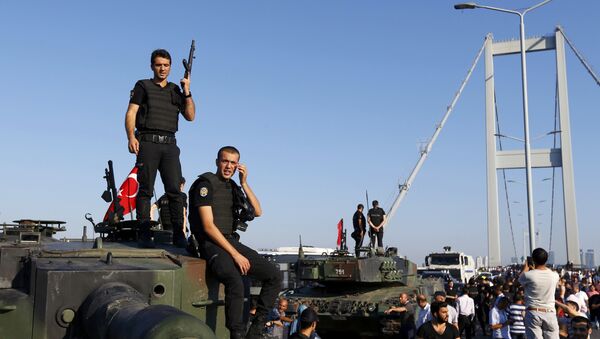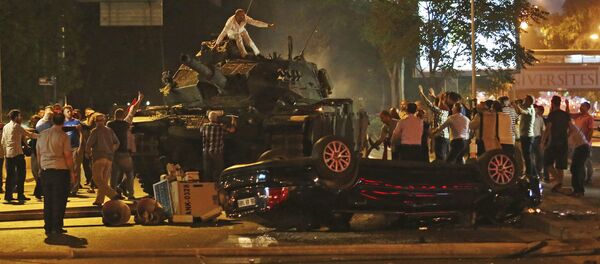"Volatility in Turkey means that NATO's anchor of stability in the region has weakened. In other words, the alliance will also become weaker in the region," he told Deutsche Welle.
General Sir Richard Shirreff, who served as the bloc's Deputy Supreme Allied Commander Europe from 2011 to 2014, expressed similar sentiments in the days following July 16. "Sadly, not only will Turkey be weakened by the failed coup, which saw soldiers firing on other soldiers, but NATO as a whole will be weakened – at least in the short term," he said.
On July 16, a group of mid-level military officers staged a coup, but failed to seize the power. Erdogan and his supporters have blamed influential US-based Islamic preacher Fethullah Gülen for the events, launching a major crackdown that has left more than 60,000 military personnel, police officers, judges, civil servants and teachers fired, suspended or detained.
The crackdown presents at least a short-term challenge for Turkey, Portugall noted.
"If you remove military commanders, many in law enforcement and the judiciary, as well as scholars and teachers, at first there will be no one to replace them. This implies that certain institutions will not be as efficient as they used to be," he said.
On the other hand, Ankara has the second largest military in the alliance. As a result, "for any fired general there is a colonel ready for a promotion," the analyst observed.



